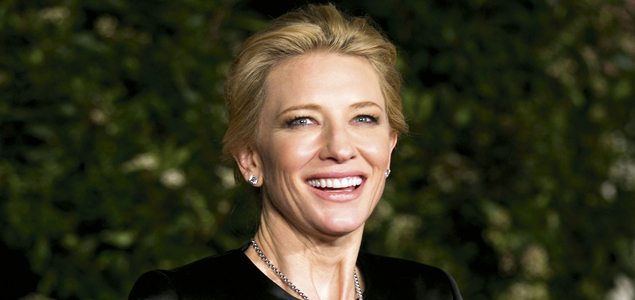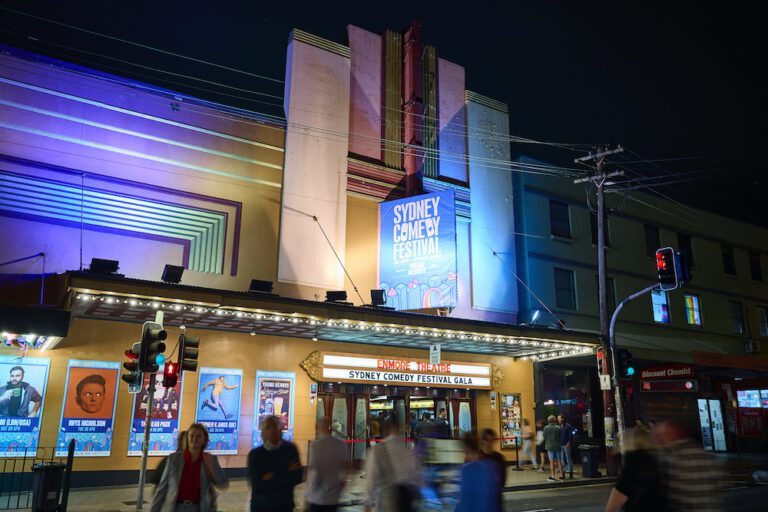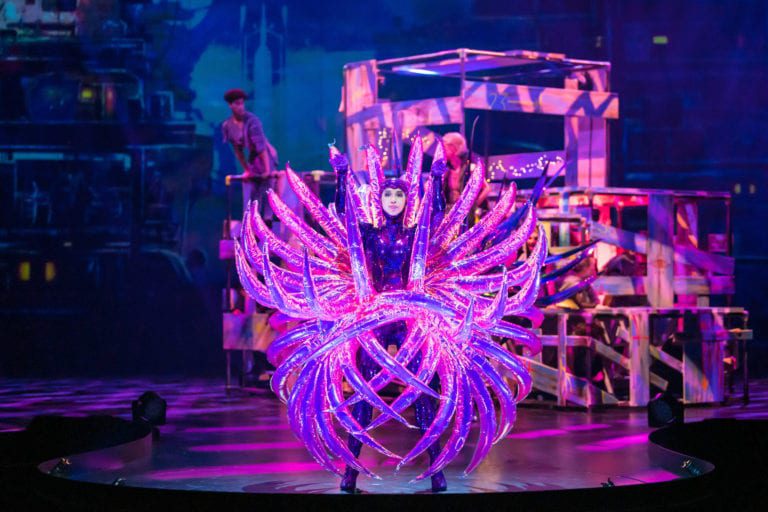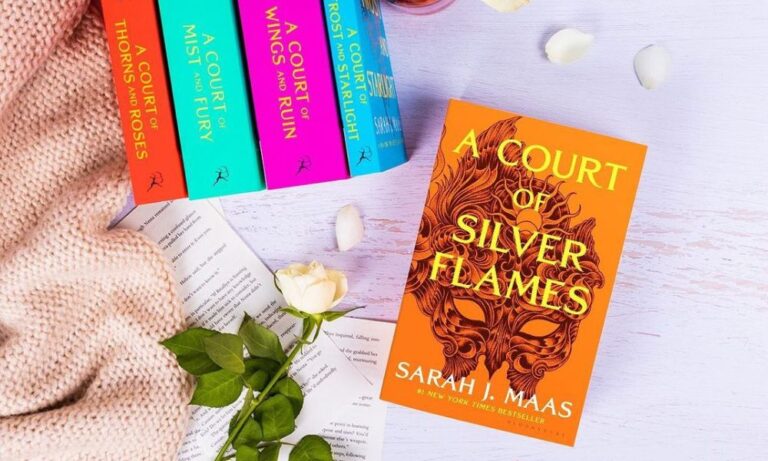On a warm winter’s afternoon in Los Angeles, two days after her Best Actress triumph at the Golden Globes for Blue Jasmine, Cate Blanchett is basking in the glory of the first, in what is sure to be a long line, of awards during Hollywood’s high-stakes season. “Fortunately or unfortunately, I don’t remember a lot. My category came up rather late in the evening so I was a couple of sheets to the wind, but once your name is read out it’s a high like no other.” She laughs. “I hope I didn’t do too many things I regret.”
As mother of three sons, Dashiell, 12, Roman, 9, and Ignatius, 5, whom she is raising in Sydney with husband Andrew Upton, she adopts a down-to-earth, family-comes-first attitude. “My boys sent me a video of them leaping up and down, screaming when my name was read. They made me a little shrine with all the dead flowers I’d been receiving through the week,” she smiles. “But my identity isn’t dependent on awards, though when you’re proud of something you’ve done and then it’s critically well received, that’s a pretty pleasurable place to be.” She smiles unabashedly, raising her voice. “And I’m enjoying it immensely, probably disproportionately and indecently so.”
Predictably, Australia’s highly prized ambassador maintains her status as one of the world’s most impeccably stylish movie stars, and this afternoon she’s swathed in a printed Fausto Puglisi dress and Louboutin heels. Her barely-there make-up is flawless. All in all, she looks like she’s just walked out of a fashion shoot. A celebrated and classical beauty who bears a striking resemblance to Botticelli’s muse in masterpieces Birth of Venus and Primavera, Blanchett deflects the attention roused by her genetics. “Well, I have an elastic sense of what’s beautiful and it’s not purely about the surface; that fades very quickly anyway.”
Now, at age 44, her stark bone structure bears a supernal complexion and negates any sign of diminishing beauty. It seems with age, the forever-poised actress has been starting to let loose a little more. Most notably, she hammed it up during her speech at the Screen Actors Guild Awards, comically fondling the winning statue (all the while, managing to look regal and elegant) and delivering snappy jokes about Matthew McConaughey’s long-winded and somewhat nonsensical acceptance speech.
But Blanchett wasn’t always brimming with confidence and self-possession, and recalls a time when the idea of her future as a powerhouse movie star and beauty icon would have been a preposterous notion. “Oh, I was never that girl. I was never the girl to be the kind of woman that Faye Dunaway was.” But she was wrong. She became that girl, and more.
A self-described “part extrovert/part wallflower”, she explains, “I knew I wanted to be an actress and thought once I went to drama school that perhaps I would give it a go. I knew you’d need to be very strong to deal with that level of rejection and I didn’t know necessarily if I had the courage.” It was the encouraging words of a friend, Aussie playwright Nick Enright, that persuaded her to pursue those dreams.
Blanchett promptly began her career in theatre. Her first major stage role was opposite Geoffrey Rush in the acclaimed 1992 David Mamet play Oleanna, for which she won the Sydney Theatre Critics’ Best Newcomer Award. She also appeared in Hamlet as Ophelia before moving into film. Two short years later, in 1994, she began collecting awards for roles in movies such as Oscar and Lucinda, in 1997, Thank God He Met Lizzie, the following year, and in 1998 earned her first Oscar nomination for Elizabeth. Many thought she deserved to win for her intriguing transformation into England’s famed Virgin Queen. In 2004 she won a Best Supporting Actress Oscar for Aviator, for her scene-stealing turn as a queen of Hollywood, Katharine Hepburn.
Forty movies later, she’s doing the obligatory promotional rounds to support The Monuments Men, in which she shares screen time with former colleagues George Clooney (The Good German, 2006), and Matt Damon (The Talented Mr Ripley, 1999). “The problem with George is that he’s so goddamn ugly,” she deadpans. “Yes, he was the Sexiest Man Alive or whatever but that was a decade ago.” The two actors have remained friends since 2005 and enjoy a faux combative camaraderie. In fact, he flew to Sydney for one night to convince her to take on the pivotal role in the testosterone-fuelled set.
The Monuments Men is based on a true story and directed, produced and co-written by Clooney, who also stars in the comedy-drama based on the book of the same title, by Robert M. Edsel. Set in the latter stages of WWII, it tracks an unlikely group of daredevils comprising museum directors, art scholars and archivists who came to the rescue of a trove of artworks stolen from Jewish collections by the Nazi regime. Their arrival came just in time to stop Hitler’s plan of destroying the remaining art by the war’s end, allowing the team to retrieve five million cultural works by the likes of Michelangelo, Picasso and Rembrandt.
Blanchett plays a Parisian curator who played a vital part in recovering these defining pieces. “I studied Fine Arts and Economics [at University of Melbourne] and specialised in mannerism art so I knew a lot about the works but I didn’t know about this particular pocket of the history of WWII. When it comes to art, I’m a big believer that you are only custodians of these works, you never really own a work of art; art exists for a collective sense of culture that transcends national borders.”
Playing this tightly wound woman was in contrast to her most recent performance in Woody Allen’s Blue Jasmine, a woman who’s spinning out of control and grappling with the after-effects of a nervous breakdown. “Rose Villand is nothing like Jasmine. I was very, very struck by her conviction and fortitude. Rose was one of many women in France who showed such courage.” She pauses and offers a surprising tidbit of information. “I have a very lovely, happy relationship to France. My first child was conceived there,” she adds with a giggle.
Blanchett’s marriage to Andrew Upton is a highly functional genuine partnership. “I’ve been married for 16 years and I think that with every passing year, it feels like destiny. I can talk to him about anything without fear of judgment, although he’ll tell me to shut up if I’m being ridiculous; he doesn’t tolerate any kind of grandeur,” she laughs. “I’m incredibly fortunate to have met such an intelligent, generous, stimulating, risk-taking man. When he was offered the job at the Sydney Theatre Company he said to me, ‘Do you want to do it together?’ I was thrilled.”
During their STC assignment, Blanchett directed, produced and starred in productions for the company such as Uncle Vanya and The Maids, and now has time to refocus on her film work, leaving Upton to finish out their term. A huge success, the company has a turnover of almost $30 million.
“I took a long sojourn from the film industry. It wasn’t a sacrifice and I’m enormously proud of the work I did with the company, plus I feel I’ve grown as an actress,” she says. “But it’s not like now I’ll be taking on films back-to-back. I have three boys and you take things on a case-by-case basis.”
It’s hard to imagine Blanchett, who exudes the composure of a prima ballerina, dealing with the chaos that three small boys at home can muster. “You should see me at six in the morning when I’m making pancakes,” she assures. “My kids get along really well, they laugh a lot and they dance. We all dance a lot, actually.”
It sounds like the Blanchett-Upton household is a joyful one. Considering her high wattage profile, it’s admirable Blanchett is able to keep the paparazzi at bay and her children are free to grow up in a comparatively normal environment. “I remember reading something that Michelle Pfeiffer said years ago, and that is, every time you screw up with your kids, put money in a jar to pay for their therapy. I think you become more versed in parenting and hopefully you learn from your mistakes. Our first one calls himself ‘The Experiment’. You can read as many books as you like, but you have to be acutely aware of where your children are at; give them a structure and a sense of compassion and humility.”
For all the praise bestowed on her elegantly straight shoulders, she says, “I’m eternally dissatisfied with my performances and maybe that’s why I keep working. I watch them once but I can’t go beyond that. It gets less excruciating over time because you get used to seeing yourself but in all honesty, I’m endlessly disappointed.”







